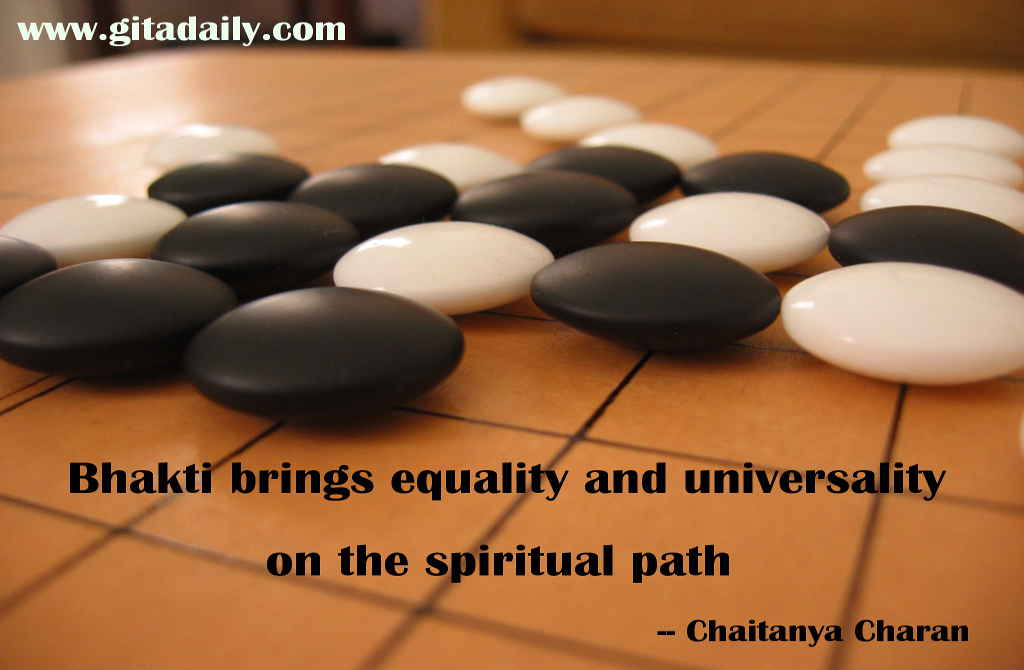
Ours is an age that idealizes the equality of all human beings. The American Declaration of Rights which enshrines this equality is widely considered a watershedin human history. Significantly,a similar egalitarian declaration wasmade by the Bhagavad-gita thousands of years earlier.
The Gita espouses the path of bhakti-yoga – the path of pure love for God, Krishna – as the best method for the empowerment and elevation of all. It (9.32) declares, “Those who take shelter in me, though they be of lower birth — women, vaishyas [merchants] and shudras [workers] — can attain the supreme destination.”
Is the reference to women, vaishyas and shudras a sexist or a casteist putdown? Not at all; rather, it is the opposite. Let’s see how.
In orthodox Indian society, there were two major forms of conventional religiosity: ritualistic materialism (karma-kanda) and speculative impersonalism (jnana-kanda). According to their puritanical standards, those with non-intellectual traditional engagements like home-keeping, agriculture or manual labor didn’t have the time or the disposition for ritual purity or metaphysical probing. Consequently, they were deemed under-qualified for spiritual advancement.
The Gita offers a nominal tip of the hat to this conventional notion and then delivers its universalistbhakti message which practically nullifies that notion.
Bhakti is a path of the heart – which all of us have– and the path of grace – which all of us can get if we approach Krishna through his devotees. Thus, bhakti opens the doors to spiritual enfranchisement for everyone – even those conventionally considered disenfranchised, as this verse indicates.
This universalism of bhakti, when applied to our times, guarantees that it can grant all of us, no matter how non-spiritual or anti-spiritual our backgrounds might have been, life’s greatest success: an eternal life of love in Krishna’s supreme abode.
Bhagavad Gita Chapter 09 Text 32
“O son of Prtha, those who take shelter in Me, though they be of lower birth – women, vaisyas [merchants] and sudras [workers] can attain the supreme destination.”

Leave A Comment